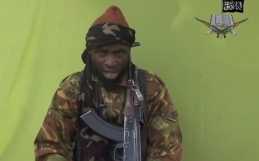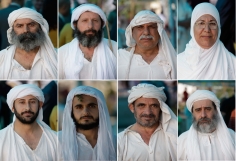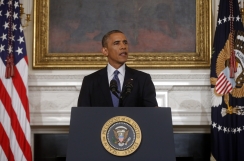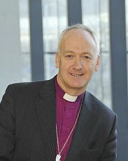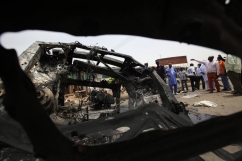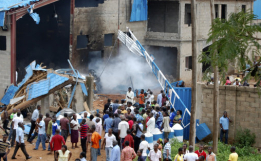
Boko Haram has claimed to have begun an Islamic caliphate in northern Nigeria, where it now controls at least three towns, indicating a tightened grip on the fractured nation.
A video has been released by the extremist group, in which leader Abubakar Shekau – who has been sanctioned by the UN Security Council – declares: "Thanks be to Allah who gave victory to our brethren in Gwoza and made it part of the Islamic caliphate."
Gwoza, a town in Borno state in northern Nigeria, was taken over by Boko Haram militants on August 6.
Insurgents destroyed the town and conducted house to house killings, forcing residents who were able to escape to flee to nearby mountains.
Around 10,000 of these are now reported to be displaced within Nigeria and neighbouring Cameroon.
It is not known exactly how much territory Boko Haram now holds, as militants often besiege towns before moving on, but militants are in control of Gamboru Nagala, Borno state, and Buni Yadi in Yobe state, in addition to Gwoza.
"By the grace of Allah we will not leave the town. We have come to stay," Shekau insists in the 52-minute video.
His declaration has fuelled speculation that Boko Haram are working alongside the Islamic State (IS) which now controls large parts of Iraq and Syria. According to the BBC, Shekau has congratulated IS for its reign of terror in a previous video, but there is no evidence to confirm that the two groups are now allies.
Chris Olukolade, a military spokesman for the Nigerian government, has rejected Shekau's claims. "The sovereignty and territorial integrity of the Nigerian state is still intact," he said in a statement.
Experts have noted, however, that Boko Haram has been more active in recent months and has even begun recruiting in bordering Cameroon, Niger and Chad.
"They have been quite active and I think this is worrying people," Raffaello Pantucci, senior research fellow of military think-tank the Royal United Services Institute, told The Times.
Pantucci added that Boko Haram have made "substantial progress" across Nigeria.
Earlier this week, militants besieged several towns and cities and attempted to destroy a bridge near the border between Nigeria and Cameroon.
According to AFP, three people had their throats cut outside a church and thousands were forced to flee.
Boko Haram is thought to be responsible for the deaths of 13,000 people since it became active in 2009.










